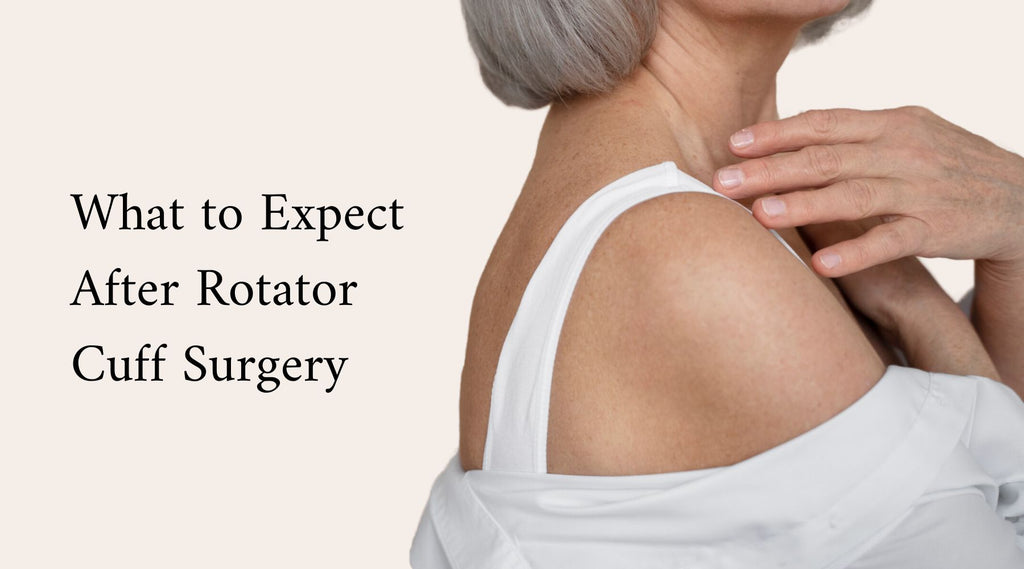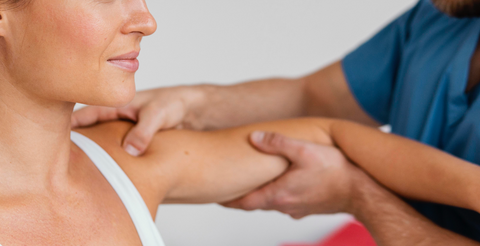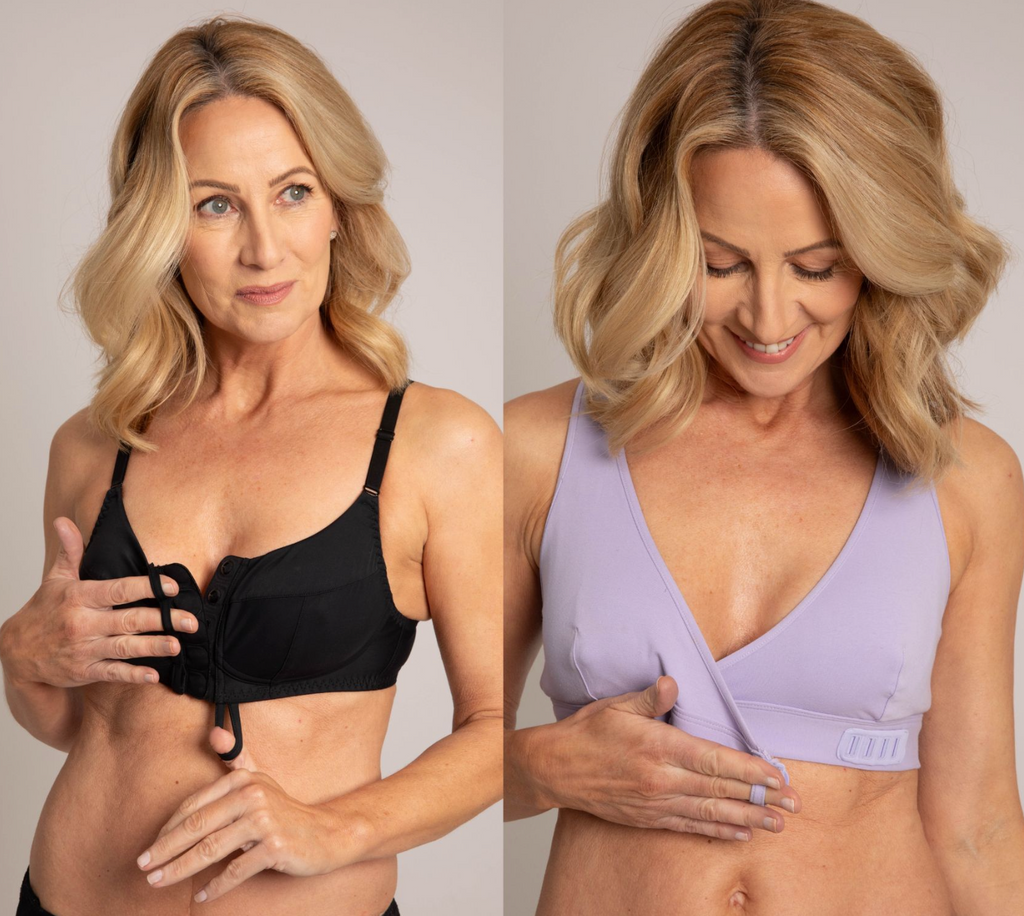
Immediately After Surgery
In the first few days after surgery, managing pain and swelling is a priority. Your doctor will likely prescribe pain medication and advise using ice to reduce inflammation. Keeping your arm in a sling is essential to protect the repaired shoulder and support proper healing.
With that said, it’s important to have outside help! You don't want to cause more pain by trying to do something yourself. This is the time to heal. It's okay to ask for a lending hand.
 Post shoulder surgery bras | Easy-on and front closure bras
Post shoulder surgery bras | Easy-on and front closure bras
Physical Therapy:
Rehabilitation is a significant part of recovery. Initially, your orthopedic surgeon will recommend a physical therapy plan that starts with gentle movements to prevent stiffness and improve flexibility. This may involve assisted arm movements by a therapist, progressing to more active exercises as healing progresses. Make sure yo go at your own pace and be patient and persistent.
Recovery doesn't happen overnight. It requires commitment and persistence in following the recommended rehabilitation plan. Skipping exercises or overexerting yourself can hinder progress and potentially lead to complications.

Returning to Daily Activities:
The timeline for resuming daily activities varies for each individual. Simple tasks like dressing and light chores can be reintroduced gradually. However, heavy lifting and strenuous activities should wait until your surgeon gives the go-ahead.
Remember those adaptive clothing and front-closure bras we mentioned before? They are going to be your best friends for a few weeks, even months, as you start to recover and get back to daily activities. You may even find them so comfortable that they stick around. After all, adaptive clothing is designed to be comfortable and make life easier.
Regaining Strength and Function:
As physical therapy progresses, the focus shifts to rebuilding strength and function in your shoulder. Targeted exercises aim to strengthen the rotator cuff muscles and improve overall shoulder stability. Your therapist may also include activities to enhance posture and prevent future injuries. Remember It's normal to face setbacks during recovery such as plateaus in progress or occasional discomfort. Communicating openly with your healthcare team allows for adjustments to the rehabilitation plan as needed.
Long-Term Care:
Even after formal physical therapy, maintaining shoulder health is crucial. Regular exercise, including specific shoulder-strengthening routines, helps prevent reinjury and supports long-term joint health. Consult with your orthopedic surgeon or physical therapist for guidance on a sustainable exercise routine.
Recovering from rotator cuff surgery requires dedication and resilience. Knowing what to expect and approaching rehabilitation with realistic optimism can make the journey more manageable. With patience, consistent effort, and open communication with healthcare professionals, you can achieve a successful recovery, leading to improved shoulder function and a return to an active, pain-free lifestyle.


